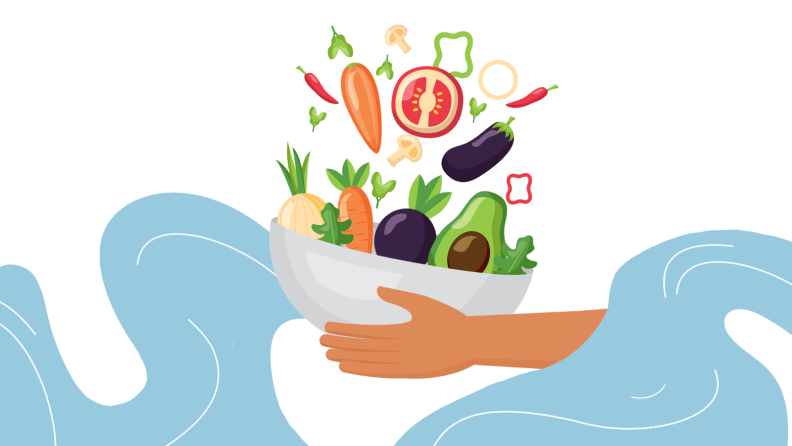What to do—and give—when a friend has a miscarriage
You can show your support in many different ways
 Credit:
Reviewed / Emily Northrop
Credit:
Reviewed / Emily Northrop
Products are chosen independently by our editors. Purchases made through our links may earn us a commission.
Pregnancy loss is more common than most realize and, sadly, a topic that continues to be taboo. The Mayo Clinic defines miscarriage as the spontaneous loss of pregnancy before the 20th week of gestation, and it’s estimated that 10% to 20% of known pregnancies will be lost.
A miscarriage is a traumatizing event that is very difficult to process since the person lost their child and is in mourning, says Alyssa Mairanz, LMHC, CDBT, the owner of Empower Your Mind Therapy.
“Because a child was not officially born, unfortunately, people often don't understand the intensity of the experience and may belittle it,” she continues. “In the cases of miscarriage, many women blame themselves around not being able to carry a healthy baby until term.”
If you have a friend going through this difficult time , you may want to offer support, but you also need to be sensitive to their needs. Your purpose is to provide comfort, be a sounding board, and show up when they need you. After a miscarriage, gifts, offers of help, and reminders of your friendship and presence can all provide meaningful support.
We spoke with both a therapist and women who have lost a child to get some gift ideas.
1. Provide food and nourishment

Give them the gift of not having to plan meals or cook.
Six years ago, Caitlyn O’Neil and her husband were diagnosed with infertility. However, the month before they planned on starting treatments, they naturally conceived their daughter, Prestynn. Sadly, they have been battling secondary infertility for years, and O’Neil has experienced several miscarriages. She candidly shares her journey on TikTok and Instagram as a way to spread awareness about infertility and miscarriage.
When she was grieving her losses, O’Neil said the physical and mental pain lasted for a long time, and the last thing she wanted to do was to get up and cook. When friends and family members sent gift cards for food delivery, baskets that didn’t require cooking, or brought home cooked meals, it took the weight off her (already heavy) shoulders.
To support the grieving parents and help carry their load, consider giving a Grubhub gift card or a Goldbelly gift basket. Then they can choose what they’re craving and needing at the moment. If their form of nourishment is through their sweet tooth, you can also send the Doughp Perfect Gift Box, which includes a personalized note, two pints of ice cream, stickers and a popper.
2. Take chores off their list
After a miscarriage, Mairanz says a person is also physically recovering, which makes it hard to function along with the emotional recovery. That’s why showing you care by doing things for them—even if it’s just sitting with them in silence watching TV or running errands—can be incredibly helpful.
“Taking chores off their list can help them focus on recovering and ease everyday stress, especially if they must be resilient and put on a brave face in front of their other children,” she says.
3. Send flowers and plants

A bouquet of flowers can send a supportive message.
When a friend loses a parent or grandparent, you likely instantly send flowers to illustrate your condolences. Though baby loss might feel differently to you, it doesn’t feel different to your friend, who is grieving the loss of a little life they hoped for and loved.
O’Neil says flowers or plants with a nice card or note are always a beautiful gesture and the perfect way to show some love and support.
“You can make a note nice and simple with an ‘I love you, I’m so sorry’ or ‘I am always a text away let me know how I can help,’” she continues. “Having flowers delivered is a nice way to check-in without just shooting them a text or calling them. It will show them you are there for them and are respecting their space at the same time.”
For the friend who enjoys indoor gardening, consider giving a gift from The Sill. For a classic bouquet option, a sympathy arrangement from Bouqs is a thoughtful gift choice.
Alternatively, you can give flowers that last forever, along with a special note, via a pop-up ‘Thinking of you’ card from LovePop. It includes a pull-out blank notepad for your message and will bring them a moment of joy when they open it.
- Plant from The Sill starting at $20
- Unbreakable bouquet at Bouqs for $59
- LovePop Thinking of You card at Amazon for $25
4. Give them time, but check in
Remember, everyone grieves in their own way and in their own time, so give your friend the time to do it their way and in their time, says Jennifer Kelman, a therapist, licensed social worker, and JustAnswer mental health expert.
“Being a supportive friend can help them to feel connected and less alone,” she continues. “They may question their worth, so being dependable without judgment can be just what your friend needs during this time.”
This may mean listening as they vent, sitting near them, but not hugging unless they ask for it, or turning up a Spotify playlist and dancing it out. Maybe it’s catching tears—but, let them make the rules. This means sending a text every few days and offering to be there, however they need.
In the interim, you can consider sending them a thoughtful gift, like a therapeutic stuffed bear from The Comfort Cub, a non-profit dedicated to supporting women who have lost a baby at birth or miscarried. The stuffed bear is meant to simulate the weighted comfort of cradling a newborn. You can apply on behalf of your friend via their website and cover the $50 fee as a token of your condolences.
5. Give comfort
There’s nothing that can eliminate the pain of losing a pregnancy, but to heal, a person needs to focus on self-care. It not only provides comfort, but encourages her to allow herself to grieve and invest in the TLC she needs to heal.
When O’Neil went through her second loss, a close friend dropped off a basket full of comforting items. It included a soft pajama set, a blanket, candles, face masks, bath bombs and salts, lotion, and favorite snacks and drinks. “It really felt so nice to go through the basket and use some of the items to lift my spirits,” she shares. “It was thoughtful and genuine and a beautiful reminder that I wasn’t alone.”
To begin putting together your box of care, start with a weighted blanket since science shows the added weight provides deep rest and relaxation, almost like the feeling of being hugged. Next, add a bath set, with some comforting bath salts and essential oils, and finally, add in a super-soft matching pajama set.
- Shop weighted blankets at Gravity Blanket
- Source Vitál Apothecary Dead Sea Bath Salts and Luxurious Bath & Body Oil Gift Set at Amazon for $145
- Eberjey Gisele Pajamas at Amazon for $128
6. Provide a keepsake
If your friend would appreciate a way to remember the pregnancy and the hope of their baby, a keepsake gift can be a meaningful way to pay tribute. O’Neil’s friend sent her a Willow Tree remembrance figurine, and it now sits on her mantel with a candle she lights from time to time.
“I love having something tangible to hold onto as a reminder of them,” she shares. “It can be a bracelet, necklace or ring, a keychain, picture frame, or a small canvas. It is a great way to give them something to hold onto as long as they need while grieving their loss.”
Sometimes, the physical act of releasing something helps a person let go and move forward. In this case, consider gifting a Remembrance Casting Heart. It comes with a pencil and piece of paper where they can write a message and then tuck it into the earthen clay. When they're ready, they can toss the heart into the water, and it’ll disintegrate without adding pollution to the planet.
For something they can hold onto, consider a birthstone remembrance bracelet to help them remember the time they had with their baby.
- Willow Tree Angel’s Embrace figurine at Amazon for $32
- Remembrance Casting Heart at Uncommon Goods for $35
- Mini Heart Birthstone Bracelet at Abbott Lyon for $63
7. Offer to babysit
Kelman says that for families going through a miscarriage, but still responsible for an older child, it can be stressful to continue to put on a brave face. Consider giving your friend some peace and space by arranging childcare or offering to babysit. If you can, and your friend is open to it, taking other children for an evening—or even a weekend—can seem like a small gift yet be hugely helpful.
While you’re taking care of the kiddos, leave your friend with a personalized care package specifically designed and curated for those experiencing a miscarriage. The Lullaby of Hope Gift Box includes tea, a bracelet, a soy candle, inspirational messages, a print, and a ‘Loved Baby’ book—all hand-wrapped by women who have experienced loss themselves.
Another option is the Care For Miscarriage Box from Bodily, which includes a journal, a healing latte mix, a book on pregnancy loss, a keepsake bracelet, and other optional add-ons.
8. Send books and journals
For some, grief books and journals are a way to release emotion and some of the pain tied to the miscarriage. Your friend may feel less alone and stronger by putting their feelings on paper or reading advice from experts (or those who have been there). O’Neil says this physical representation of grief was helpful for her processing since they provided an outlet and resource for her emotions.
One option is a guided grief journal that provides prompts and questions to promote mental exploration and care. Your friend might prefer a first-person take, like I Had a Miscarriage: A Memoir, a Movement, or a collection of poetry like Every Word You Cannot Say. For something in the self-help category, It's OK That You're Not OK: Meeting Grief and Loss in a Culture That Doesn't Understand is a good choice.
Another route to take could be giving your friend a virtual class, like Love and Loss: The Power Of Owning Your Own Story. An award-winning author leads this journaling workshop, and she helps those grieving navigate the vast landscape of living after a great loss.
- Guided Grief Journal at Uncommon Goods for $25
- I Had a Miscarriage: A Memoir, a Movement at Amazon for $14
- Every Word You Cannot Say at Amazon for $10
- It's OK That You're Not OK: Meeting Grief and Loss in a Culture That Doesn't Understand at Amazon for $14
- Sign-up for the Love and Loss: The Power Of Owning Your Own Story class at Uncommon Goods for $44
9. Remind them you’ll show up whenever they need you
You know your friend better than anyone else, so take a few moments to think about your individual friend and what they like specifically, Mairanz says. Though they may be wearing a veil of grief or have a dark cloud over them, they still enjoy the hobbies and pick-me-ups that they always have.
Maybe it’s a cup of coffee, scented candles, hand creams, chocolates; what usually makes them smile? Grab those items and bring them with you when you visit. Or send them in the mail if you live far apart.
Most importantly, though, hold space for them and remind them you’ll show up, Mairanz adds. “Offer to attend difficult follow-up appointments. Join them in the room or wait outside to meet up afterward,” she continues. “Just knowing you’re there and committed to supporting them can mean so much.”
The product experts at Reviewed have all your shopping needs covered. Follow Reviewed on Facebook, Twitter, Instagram, TikTok, or Flipboard for the latest deals, product reviews, and more.
Prices were accurate at the time this article was published but may change over time.


